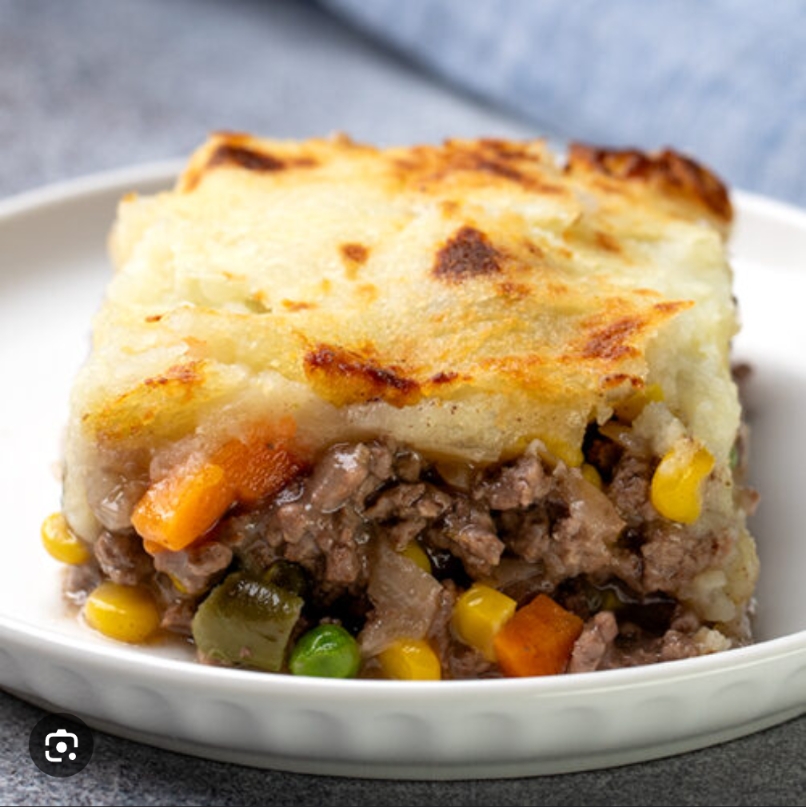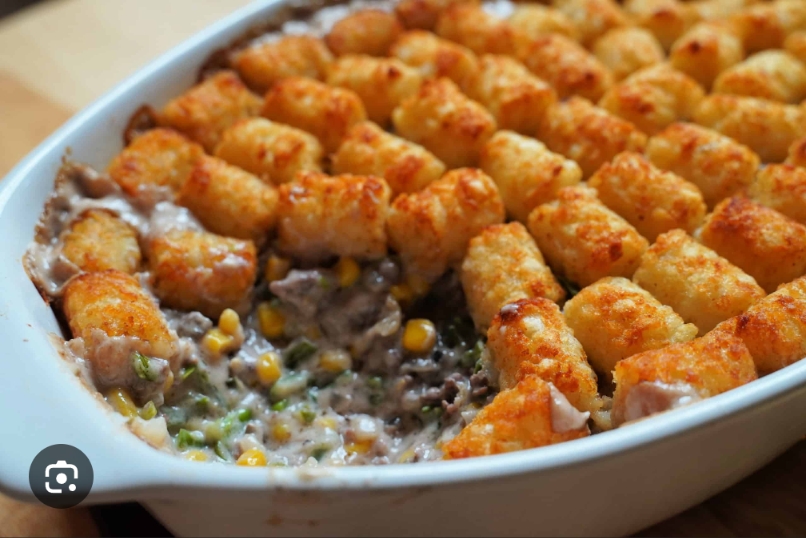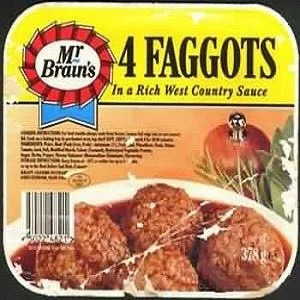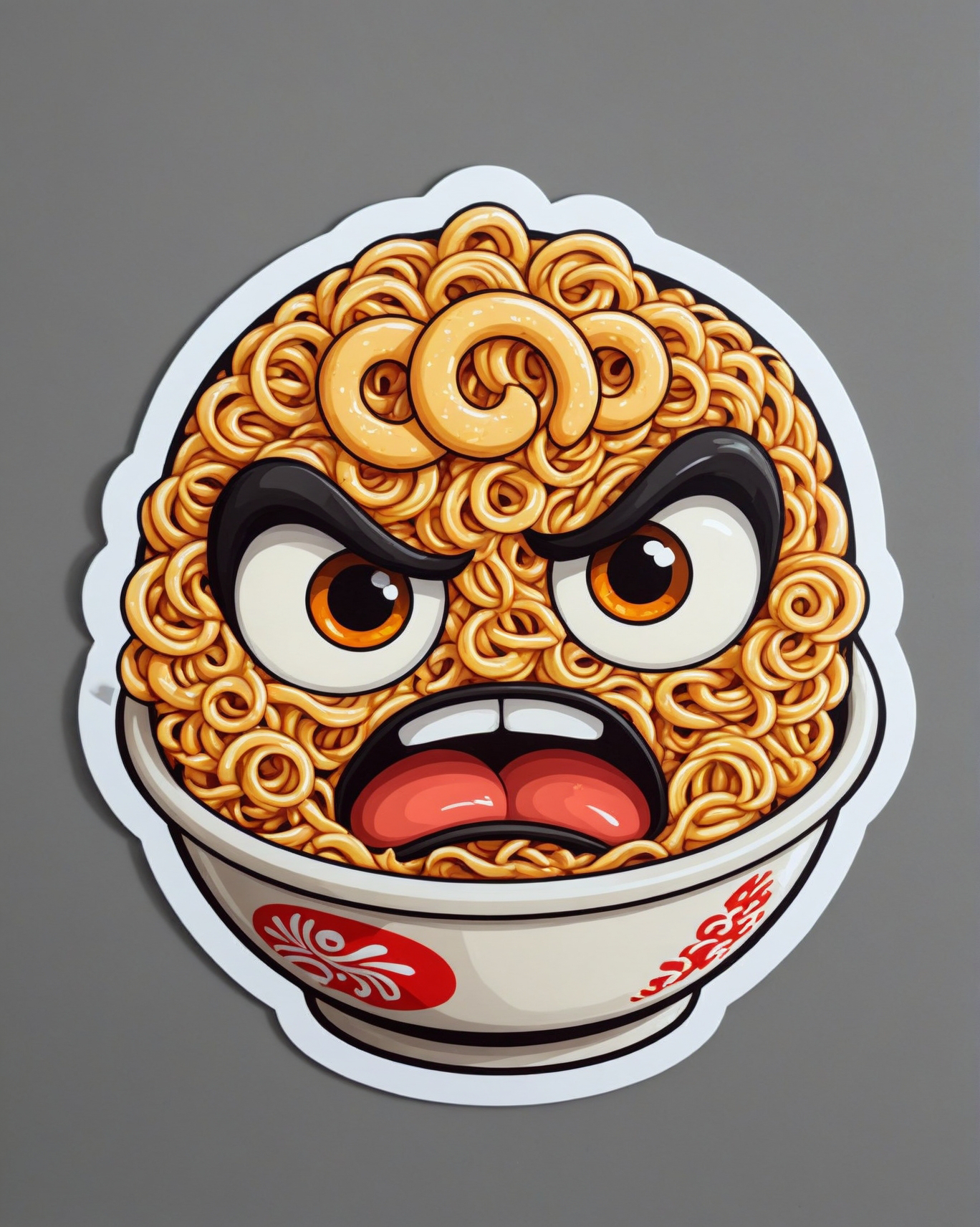While this meme is suburb, I assume you’re aware that the legacy of bland British food is heavily influenced by WW2 and post-war rationing. It had an impact even here in the US, but a much stronger one in the UK where they were rationing well into the 50s if I remember right.
Culinary history is a fun branch.
Is that why the Midwest was addicted to canned vegetables, “casseroles”, and why they’re allergic to anything more flavorful than salt and pepper?
Partly.
I’d say that impacted the entire US. The SNL skit Coneheads was all about this with “mass quantities”.
Keep in mind the impact of the Depression on people too. Quality isn’t a concern when you’re not even getting enough to eat (my parents, but especially grandparents can/could speak to this). My father was always hungry until he was drafted.
Studs Terkel’s Hard Times should be required reading today.
Twentieth century food production was a godsend to anyone born before the 1950’s.
Plus the Midwest was heavily settled by Nordic folks and Eastern European, bringing their food traditions with them.
Yeah my family is from the Midwest. On my mom’s side we’re 4th gen Norwegians who founded a town in Kansas (pretty sure it’s Kansas). They arrived just before the depression and I’m pretty sure my family’s legacy of bland cooking is partly a result from that and our Norwegian heritage. We still make kumla every year. Good stuff (minus the canned veggies. Seriously Midwest, it’s ok to use fresh vegetables)
Kumla looks pretty good. Now I really wish I had picked up lingonberries when I was at IKEA last weekend. Unfortunately I decided I didn’t know what I’d do with them. Now I know
Oh boy, kumla looks good!
So funny Midwestern farmers of all used canned veggies. But I can understand. Put yourself into Mom’s shoes at the time, 10 seconds to open a can, VS an hour to clean/chop/cook a veggie.
I highly recommend giving kumla a try! It’s very filling and will probably leave you a couple pounds heavier (don’t be shy with the butter). On the vegetable note, I can see it as a practical measure but some things are worth the extra effort imo
I’m no expert on Midwestern cuisine, there could be other factors like some central European culinary traditions, maybe religious conservatism and a general distrust of new things more common to inland cultures.
So, a factor for sure, but it’s probably complicated.
You’re probably right, I just wanted to take a cheap shot at the Midwest haha
Ope!
Hot Dish!
(what most people call casserole)
(what most people incorrectly call casserole)
By and large, yeah. Although it got it’s start with world war one rationing, proved handy during the depression and then through the second world war.
Once you’re at 30-40 years a recipe can become a “family recipe” pretty easily and then it lasts even longer.The spice thing is because in the 1800s a lot of the religions that were most prevalent in the area condemned “pleasures of the flesh” as sins only fit for “dirty, sensual Catholics enthralled to the Pope”. Looking at you, Italians. 🤨. You can see it in things like corn flakes, the cereal designed to be nutritional and the worst, or graham crackers, the least masturbatory cracker.
It’s why so many of the biggest cereal manufacturers are from the Midwest and have insane history.Don’t be too hard on the hot dish though, a lot of them have evolved towards a sorta reinvention of Shepard’s pie or scalloped potatoes.
“Minced meat with vegetables topped with potatoes” and “potatoes mixed with a thickened cream topped with cheese”.

Green bean and tuna noodle casserole are not for me though.
Dang, ppl are putting suburbs everywhere these days. First they put them in cities, then rural areas, and now they’re putting suburbs in memes too? How does that even work?
Sometimes I can’t believe it…
This is absolutely right.
Unfortunately England chose to carry on like we were rationed into the 1970s.
Stuff like that leaves a mark. It took the US beer industry 60 years to recover from prohibition and start making actually good beer again. We still have depression era dishes, like Anything Chili. We just were lucky to have peppers that grew natively.
Oh, I’ve always assumed that the bland British food jokes are because a few of the less exciting offerings are just so easy to make fun of, like beans on toast, not an actual paucity of culinary culture.
Don’t jump the gun common British food not great before either, but it was eaten by peasants that had no access to spices besides salt. The taste of their food and the beauty of their women made the British the best sailors in the world.
It’s a funny joke but that last line taken seriously indicates that for all their pillaging they did a surprisingly small amount of raping. After all, that’s why women in Scandinavia are mostly attractive, the Vikings enjoyed both in equal amounts.
Alternate take: this meme is expired, because all of the foods on that plate are only bland if prepared by a bad cook.
Toast with butter is a delight. It’s not gonna knock your socks off with complexity, but good bread with good butter shouldn’t be bland. Heck, good bread by itself shouldn’t be bland. Same with fried fish - a nice juicy piece of flaky white fish fried in a properly-seasoned batter is an absolute delight, not bland at all unless you’re using bottom of the barrel ingredients and don’t know what you’re doing. And canned beans are absolutely loaded with spices, salt, and acidity, they’re probably the most complex thing on that plate.
Food guide;
- British food is tasteless
- French food is pretentious
- italian food takes all afternoon
- American food is poisonous
- Indian food is special because it uses something called “spice” and no one else does apparently
- asians eat rice
- anyone east of Berlin eats either turnips or caviar
What did I miss ?
American food is poisonous
American food is grease and sugar. Pure grease and sugar. Sometimes combined. God, I want a funnel cake right now.
Dammit, I just realized I haven’t had a funnel cake in literal years. How sad.
3 things that will make anything better, fat, sugar, and salt. If your dish isn’t doing it for you, just keep adding at least one of those three, based on the dish, and eventually it will be delicious.
Acid is another magic ingredient. Lemon juice, vinegar, or even just straight citric acid from a shaker if you don’t want to add more liquid. Sometimes something will taste like it needs more salt, but adding a touch of acid is actually what it needed.
And funnel cakes are arguably Eastern European/Germanic. It’s a similar batter as Dutch Baby (think Dutch as in “Deutsch”), aka German Pancake (and also popovers). There’s a slight change for each one, but essentially an eggy batter with no leavening.
Though I’d guess every country has a version of it, and brought it with them to the US.
I’ve never had a funnel cake before. I almost had one over the weekend at the fair, but I decided to try an elephant ear for the first time ever. It was okay. A bit too much sugar for me.
Oh, my poor child. I’d mail you one if I could.
Alton covers it in Good Eats “Popover Sometime”. Popovers use a similar batter.
Stupid easy to make. My mother wasn’t much of a cook (bless her heart), and still taught us to make them as kids.
I’ll get one next year at the fair. Then I can experience this wonder you speak of.
Do you like donuts and/or fritters? If so, imagine them combined in a vaguely circular, bumpy, crunchy disc. Funnel cakes are amazing - if you eat them plain, there’s not a lot of sugar too. Of course, the classic is with all sorts of sugary condiments crusting the top…
I enjoy fresh donuts that aren’t overly sweet. I went to Krispy Kreme when it opened in my city, pretty excited because of its popularity, thinking I was going to get the best donut I’ve ever tasted. It was disgusting. I felt like I was eating a sugar soaked sponge. So, too much sugar ruins something for me, but a savory and sweet donut is pretty tasty.
I like a good plain donut (and dislike Krispy Kreme) myself. I think you’d like a good funnel cake!
It’s fair season. I’m sure you can find a carnie slinging a funnel cake nearby.
Unfortunately, my limited mobility (and income for that matter) put the kibosh on that. Or at least make it more trouble than it’s worth. I’ll have to make one myself one of these days.
Indian food is special because it uses something called “spice” and no one else does apparently
Was in Hyderabad for work a few times about 10-15 years ago and in fairness, India is the absolute GOAT of spicing food. Like every dish is flavourful but not necessarily spicy. Office canteen food costing about 40c served on a prison tray - Incredible. Hell even the airport food was delicious.
If you want more vegetarian dishes that aren’t just soy pretending to be a meat dish (and usually disappointing), try out some Indian dishes. A decent portion of their population is vegetarian for religious reasons and they’ve made the best of it. I went to a vegetarian Indian wedding once and didn’t miss having meat at all.
I make dol as part of my normal rotation and even my daughter loves it when I was expecting her to be disappointed with what was mainly lentils and spinach served with flatbread. But the little bit that isn’t lentils and spinach is just as important.
It’s not just India, many Southeast Asian countries have spices in their dishes.
As an Indian I approve of this message
Mexico also loves their spices. And the Middle East. And Nepal and China (not sure if they both count as Southeast Asian or if that’s mainly the peninsula South of China).
Russians exist on a diet of pure vodka
Simply looking at Mexican food will give you explosive diarrhea
Apparently the British did use spices until world war 2. Then it was decided that shipping is limited and spices were a luxury when the island needed an unending supply of food and guns.
Then instead of starting right back up in 1946, food remained an issue for the British through the 1950’s. So the lack of spices became more accepted. It’s the same reason America still has depression era dishes like chili.
Britain is actually starting to use spices again, just like the American beer scene is finally recovering from prohibition.
If chili is a depression food then bring on more depression food I say.
Well there’s always been the idea of the anything soup or stew. Chili is really just the American take on it. It’s popularity right now though is very much tied to the depression.
I always thought that chili was from the cowboys of the old West. The one that existed, not Hollywood’s/ Italy’s version.
Wikipedia gives a decently quick tour of chili’s evolution.
I’ve been spouting about the “chili queens” of old San Antonio as the origin, but it sounds like they were more significant as an early analog to food trucks that drove chili across cultural gaps. The origin of that food sounds like it originated back, at least, to indigenous peoples and does sound like a staple of cowboys/vaqueros long before the Great Depression.
Then there’s Cincinnati-style chili, “developed by Macedonian and Greek immigrants, deriving from their own culinary traditions”, so that merging of another style under the same name might muddy the water when it comes to talking about the origin of spiced meat bits.
Stuff like chili often already exists somewhere before it gets popularized. The depression certainly didn’t invent American style spiced beef stew. But much like cowboy breakfast (beans, salted pork, coffee) it was simple, cheap, and could stretch protein to feed a whole family.
Also a pretty easy meal if you have depression
Yup, I can vouch for that. Actually it’s about time I made some again…
Is it 3am where you are?
Isn’t it always? Don’t tell me you get to see the sun?
Ha ha “starting” to use spices again lol
Nice info from 60 years ago
This is the best use of this meme I have ever seen. It hit me in all the right spots xD
It’s a shame so many people don’t get to experience flavourful British food, or go with stereotypes, since there’s a bunch of really nice stuff.
I even have a book from the 1700s detailing the use of various herbs.
I even have a book from the 1700s detailing the use of various herbs.
do you ever lend it out to the other brits to read? ;)
Give other Brits such an old book? What if they put it in their personal collection?
“Cheers pal, straight to the British Museum. Come, you can read the plaque about how the recipes used to be yours.”
Nah, although that’s older than the US it’s not an old book by our standards. That one’s probably just a first edition of one of Mary Berry’s books.
It belongs in a museum!
Sounds like you’ve never had a lincolnshire sausage, or a nicely made shepherd’s pie. Pies and pasties are often seasoned too.
well i was joking mate.
Pies and pasties are often seasoned too.
“often” seasoned?
i’m just messin my man.
I went to Scotland recently and I’m not sure how representative that is of UK food over all, but they definitely seasoned and spiced their food. So if that tracks for the UK over all they are recovering, it’s just one hell of a hang over. The US had to do the same with the depression era.
Maybe those flavorful recipes are just too modern for most Brits
Well, 300 years is recent to Brits. Give em time to try it out, and circulate their favorites.
For money
What good is money if it cannot bring you flavor?
The freedom to choose flavor, or to not choose it, has intrinsic value.
They use the money to buy other cultures cuisines. They got it figured out.
Tomatoes were from America brought to Europe during the 16th century and add umami flavor to baked beans, not sure if that counts
They specifically invented tikka masala for that
Indentured servants from India and Bangladesh, living in GB, invented it to appease their captors. If one can find a traditional British Indian restaurant they’ll find the Tikka masala bland as fuck: It’s all cream and salt. They’ll barely even use ghee or chili.
It’s ironic how strongly some old world cuisines cling to spicy food these days, considering Europeans introduced Asians and Africans to chili in the first place, bringing them all the way from the americas not so long ago. Suddenly, only when it feels like lava on your tongue can it be called authentic even though they lived thousands of years without chili on an otherwise very similar diet.
Several spices, roots, and herbs are native to those regions and have been used for centuries. Combinations of these spices can trigger similar nerve bundles that capsaicin from American peppers does (more easily)
Sichuan peppercorns are native to china and have been used in their cuisine since at least the 16th century
Ginger is native to maritime Southeast Asia and has been used in food for at least 5000 years since the early austroneaseans
Wasabi is native to Japan and Eastern Russia and has been used in their cuisine since the 8th century AD
Cassia cinnamon (hot cinnamon) is native to china. “True cinnamon” is native to Sri Lanka. Saigon cinnamon is native to Vietnam. All three have been imported from their native lands since at least 3000BC to Egypt and other African regions.
Mustard is native to India originally cultivated by the Indus civilization in 2500 BC. It’s a relative of wasabi after all.
Curry leaf from the curry tree is also native to India and Asia and has been part of their cuisine for millennia.
Put all these ingredients in a stew with zero chilies and I guarantee it’s going to burn through the roof of your mouth, your tongue, and your lips all at the same time.
Capsaicin is popular in modern versions of these dishes because it is cheap due to being easily cultivated and achieves spiciness without needing to cook the food for an entire day. But old world versions of many traditional dishes were still just as spicy.
Point being their cuisine wasn’t nearly as spicy before because they didn’t drop copious amounts of cheaply available chilies into nearly every meal. A lot of those spices were nearly impossible to obtain in large amounts even in their native regions and aren’t as spicy to begin with.
The American chilis were a replacement for a local one, with the benefit that because there was more spice density could be stretched longer. Spicy wasn’t invented by American peppers.
Often times, a new spice is simply surplanting a local not because the flavor wasnt there but because it was economically superior (you can stretch the same spice further)
It was just as spicy prior. Chili replaced the black pepper, still often used as whole peppercorn in many south indian restaurants and home kitchens.
We’re pretty sick and tired of our history being rewritten to placate the feelings of white moderates.
Everyone is always mocking Britain’s cuisine, but some of their food is good, like Shepard’s Pie.
You know who doesn’t get enough hate? The Belgians.
The Dutch (Netherlands) and the Belgians are not the same…
I have only known Belgians to admit to eating sprinkles on untoasted white bread with unmelted butter, I guess the dutch are guilty too.
Belgians gave us good fries and fat waffles though, for that, as a grease-besotted American I can’t bring myself to hate them.
Good fries is an understatement.
Belgian fries are amazing !
Yeah, leave our cuisine alone. You haven’t lived until you’ve had tripe or a faggot in your mouth.
Edit: I feel this might need some additional info

and for what!?
Ultimately? For humble pie.
The British were so hangry, so incredibly hung-over, so fed-up with the limited cuisine at home, that they colonized half the planet in search of a proper meal like their very lives depended on it. And for a time, the spice did indeed flow. But that quest cost countless lives, started many wars, and ultimately, ended in defeat. In the end, some people from those far off lands, now liberated, emigrated to their conqueror’s homeland of their own free will and brought their pantries with them. In so doing, perhaps with a spicy side of defiance, meals are served in London daily that provide a reminder of how the surrounding kingdom is a mere shadow of it’s former self.
PLEASE PUT BEAN IN TITLE!
“All that colonizing didn’t amount to a hill of beans”
Portuguese here. There can be tasty full english (there are rumors) but this is not it
Don’t be throwing shade at beans fish fingers and bread Classic beige Brapas
from what I understand the majority of spice trade man then was for dyes and perfumes rather than seasoning food.
The hand adds flavour









